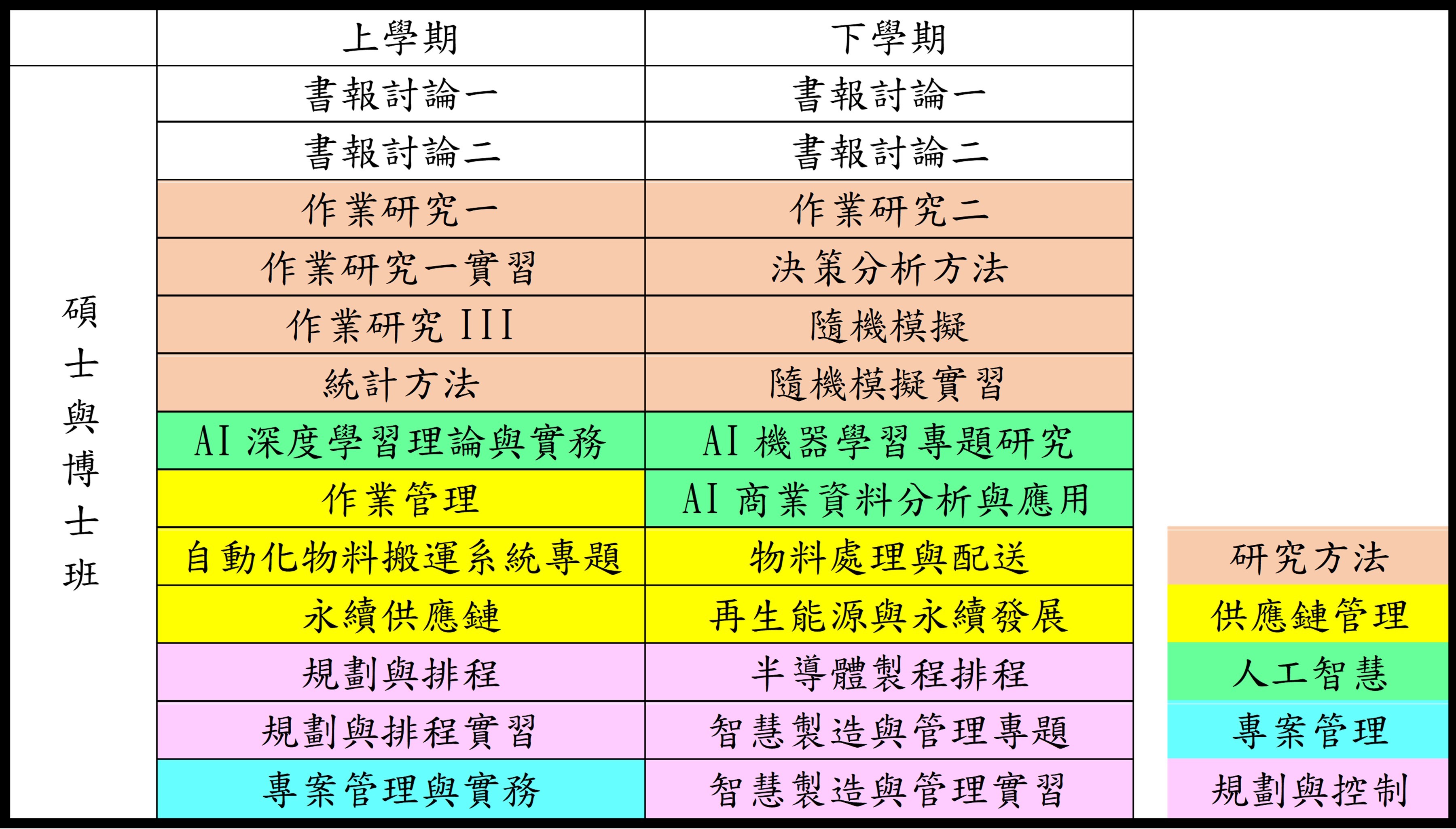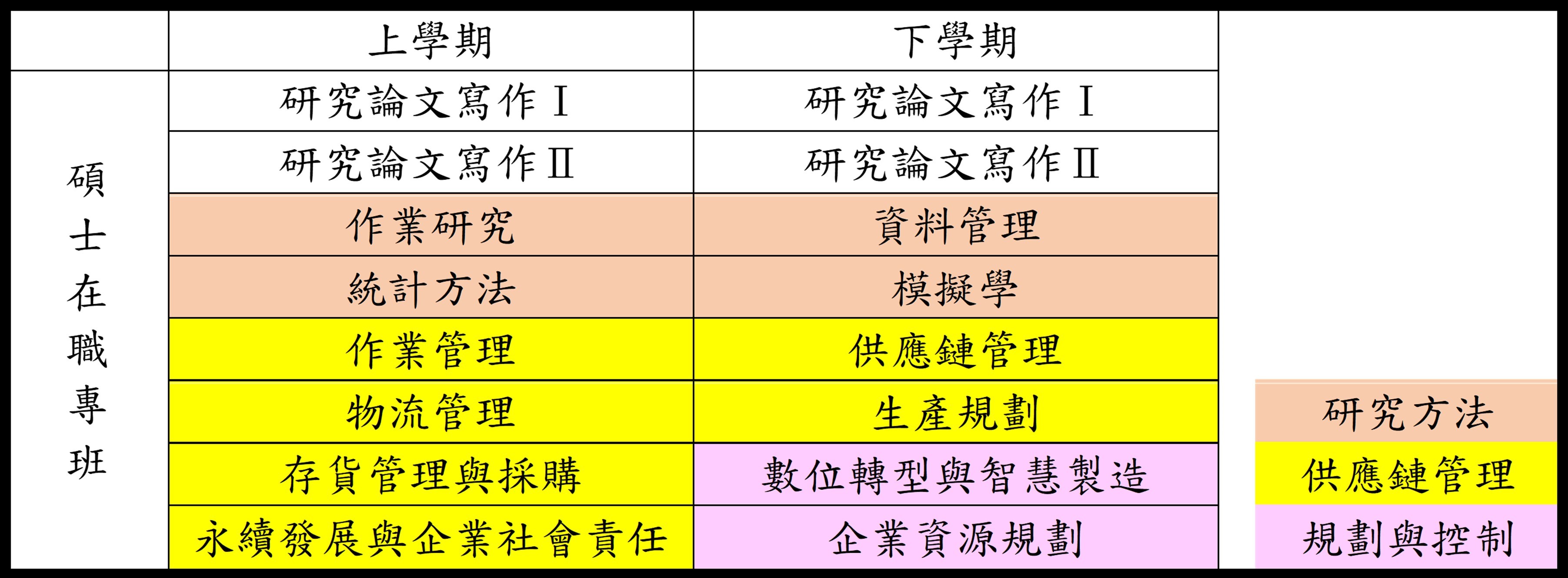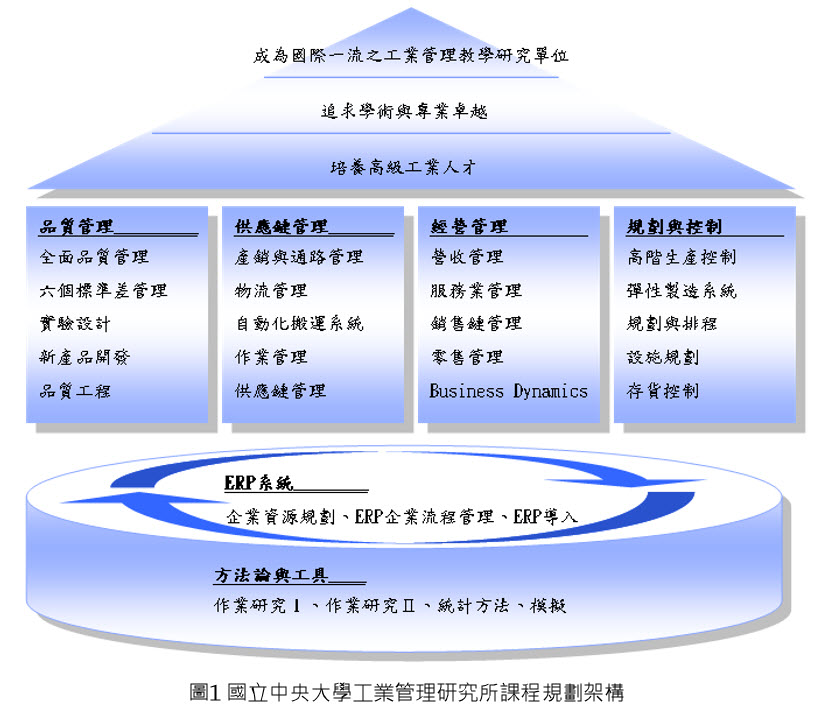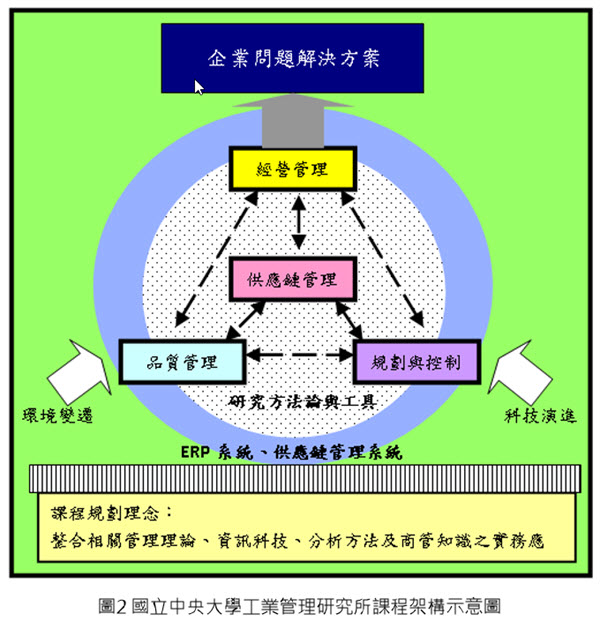 :::
:::
Curriculum
Teaching Objectives and Curriculum Structure
Download
Teaching Objectives
In order to implement the educational guidelines of our department in curriculum design and teaching directions, we have established teaching objectives and course domains for different stages of classes, as shown in the table below for each class' s teaching objectives and course domains.
Class Type
Teaching Objectives
Key Course Areas
Master' s Program
Train students to apply process planning, information technology, and business management knowledge based on research and analytical methods, integrating and assisting enterprises in solving issues ranging from management problems to related topics in supply chain and manufacturing systems.
Research Methods, Supply Chain Management, Quality Management, Operations Management, Planning and Control
Executive Master' s Program
Guide students to apply theoretical methods and frameworks to practical environments, with a focus on applied business management and industrial digitization as the development direction.
Research Methods, Supply Chain Management, Quality Management, Enterprise Resource Planning, Operations Management
Doctoral Program
Develop faculty and professionals in industrial management fields, equipping them with educational and research capabilities. They will explore important issues related to supply chain management in the practical environments of domestic and international enterprises, examining the causes of these issues.
Quantitative Methods, Production Management, Logistics Management, Business Modeling
Related academic activities include graduate students entering their professional fields, engaging in research and publishing research findings, as well as giving back to society, etc. Our institution understands that fostering talent is the core mission of education and the responsibility of academic professors. Therefore, in our curriculum design and teaching approach, we adhere to the principle of placing humanity at the forefront and science as a support, allowing research and academics to closely integrate with teaching. Below are Tables 1~ outlining our curriculum planning.
Master' s and Doctoral Programs

Executive Master' s Program

Course Structure
Currently, we offer Doctoral, Master' s, and Executive Master' s programs. The main curriculum structure is built upon foundational courses in methodology, combined with ERP system courses, and is developed into the following four major areas: Quality Management, Supply Chain Management, Operations Management, Planning and Control, as shown in Diagram 1. Our institution’s four professional fields are of significant importance in different stages of educational development and play a vital role in cultivating elite talent in industrial management. We also strive for academic and professional excellence and aim to become a world-class institution for industrial management teaching and research.
Due to industry integration and the results of corporate collaboration, businesses are no longer operating in isolation. Thus, our curriculum planning focuses on developing students' ability to integrate relevant management theories, information technology, analytical methods, and business management knowledge into practical applications in the future supply chain systems. This will assist businesses in recognizing industry operating environments and opportunities, effectively solving operational management problems, and creating a competitive advantage for enterprises, as demonstrated in Diagram 2.


 :::
:::